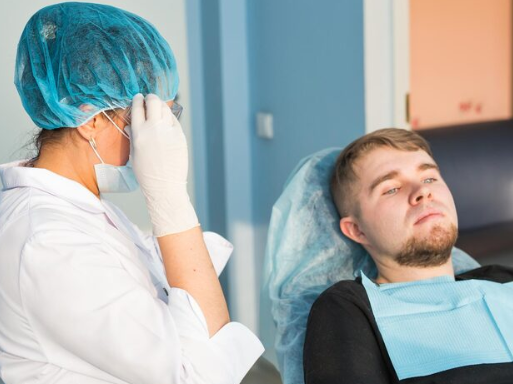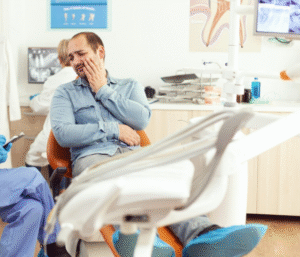In the world of modern dentistry, technology often takes the spotlight — digital scanners, CEREC crowns, or AI-assisted diagnostics. But beneath the gleam of innovation lies something more profound: empathy. For many patients, the most transformative aspect of a dental visit isn’t the precision of a new crown or the perfection of a restored smile, but the feeling of being truly understood. This is where sleep dentistry quietly steps forward, redefining not only patient comfort but also the emotional architecture of trust between dentist and patient.
The Emotional Dimension of Oral Health
To understand why sedation plays such a critical role in trust, we must first understand the emotional landscape that dentistry occupies. The mouth is a deeply personal space, an intimate frontier tied to communication, self-image, and vulnerability. When a patient sits in a dental chair, they are not just opening their mouth — they are, in a very real sense, relinquishing control. For someone living with anxiety or depression, this surrender can be terrifying.
Sleep dentistry offers a bridge — not just a pharmacological one, but an emotional one. By providing a way to quiet the racing mind and soften the physiological response to fear, sedation transforms the clinical environment into one that respects the patient’s psychological boundaries. It doesn’t dismiss fear as irrational; it acknowledges fear as real and deserving of accommodation. That shift in perception — from “fearful patient” to “human being with layered emotions” — is where trust begins.
The Dentist as a Listener, Not Just a Healer
Dentists who offer sedation often distinguish themselves not by their technical skills, but by their emotional intelligence. They listen more deeply. They understand that a patient’s hesitation to book an appointment may have little to do with pain and everything to do with past experiences — the sound of the drill, a dismissive comment, or a childhood memory that never quite faded.
When a dentist creates space for these stories, sedation becomes more than an anesthetic option; it becomes a language of empathy. A patient who feels heard is more likely to accept care, follow through with treatment, and, most importantly, return. Trust, in this way, becomes circular — the patient’s comfort fuels the dentist’s purpose, and the dentist’s empathy reinforces the patient’s courage.
The Psychological Weight of Pain and Avoidance
For patients navigating anxiety or depression, avoidance of dental care often compounds emotional distress. Oral pain, tooth loss, or embarrassment about one’s appearance can intensify feelings of inadequacy and isolation. The connection between oral health and mental health is now well documented — studies have linked periodontal disease and untreated dental conditions to higher rates of depressive symptoms.
When depression and anxiety becomes an amplifying concern, the dental chair can seem like an impossible destination. The brilliance of sleep dentistry is that it doesn’t demand bravery — it offers relief. It provides a controlled space where the patient doesn’t need to fight their body’s panic signals to receive essential care. And in doing so, it reintroduces autonomy: the choice to seek treatment, the choice to heal.
Sedation as a Mirror of Modern Compassion
In an era where healthcare increasingly emphasizes patient experience, sleep dentistry represents one of the most tangible manifestations of compassionate care. It shifts dentistry from the mechanical to the mindful — from “fixing teeth” to “restoring trust.” A patient under sedation may not consciously perceive the details of their procedure, but they will remember the kindness in the preparation, the gentleness in explanation, and the absence of fear upon waking.
For dental professionals, this transformation is not incidental; it is intentional. It requires training, certification, and a mindset that prioritizes emotional safety as much as clinical success. By offering sedation, a dentist signals to patients that their fears are not obstacles but part of the human condition — something to be cared for, not corrected.
Building a Culture of Trust
Trust, in dentistry, is not built in the absence of fear — it is built in the presence of empathy. The most successful practices of the future will not only invest in cutting-edge technology but also in psychological insight. They will recognize that a serene patient is not merely a cooperative one, but an empowered one.
Sleep dentistry allows this evolution to unfold naturally. It teaches both patient and practitioner that healing is a two-way process: one grounded in understanding as much as precision. In many ways, sedation dentistry is the physical embodiment of reassurance — a way of saying, “We see your fear, and we have prepared a place for it.”
The Future of Empathetic Dentistry
As mental health awareness deepens globally, the intersection between dentistry and emotional wellbeing will only become more pronounced. Future dental environments may resemble sanctuaries more than surgeries — spaces where music, scent, and communication are as important as instrumentation. In that evolution, sleep dentistry will remain central, not as a niche offering, but as an emblem of a new kind of care — one where science and empathy share equal authority.
At its heart, sleep dentistry is not merely a clinical offering; it’s an act of compassion turned into practice. It acknowledges an unspoken truth: for millions, the dental chair represents not care, but confrontation — with fear, trauma, or even self-judgment. Studies show that nearly 36% of the population suffers from some level of dental anxiety, with about 12% experiencing such acute distress that they delay or avoid treatment altogether. But behind those numbers are stories — stories where when depression and anxiety becomes an amplifying concern, dental care becomes more than a health service; it becomes a psychological negotiation.
Because in the end, dentistry is not just about restoring smiles. It is about restoring confidence, courage, and connection. And the dentists who understand this — those who integrate sedation not as a convenience but as an expression of compassion — are quietly rewriting the ethics of care.
They are proving that trust is not built by eliminating fear, but by meeting it — gently, patiently, and with empathy as the guiding light.




